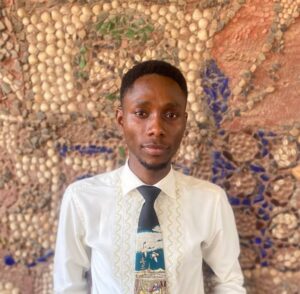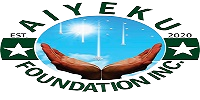
THE 2025 AIYEKU FOUNDATION CRITICAL THINKING ESSAY WRITING
COMPETITION.
NAME: OLADAPO MOSES GBENGA
SCHOOL: OBAFEMI AWOLOWO UNIVERSITY, ILE IFE , OSUN STATE , NIGERIA.
FACULTY: CLINICAL SCIENCES
DEPARTMENT: MEDICINE AND SURGERY
LEVEL: 500 LEVEL
THE SMILE THAT DEFIED THE ODDS: A TALE OF COMPASSION, FELA’S
PHILOSOPHY, AND THE POWER OF CROWDFUNDING
I sit in the quiet corner of the Plastic Surgery Unit at Obafemi Awolowo University Teaching Hospital Complex (OAUTHC) in Ile-Ife, the faint hum of the fans blending with the soft chatter of nurses. As a medical student on rotation, I’m still grappling with the complexities of conditions like facial trauma, my knowledge a patchwork of lectures and textbooks. Yet, the story I’m about to tell is that of a nine-year-old girl named Deborah, whose life was transformed by the selfless acts of a crowdfunding community has left me in awe. It’s a tale that intertwines the fiery activism and lyrical wisdom of Fela Anikulapo Kuti with the transformative power of collective giving, echoing the principles of the Aiyeku Foundation. Both are united by a belief that helping the marginalized without strings attached is not just a path to earthly happiness but a bridge to eternal reward.
Deborah arrived at OAUTHC on a sweltering Wednesday afternoon, her small frame trembling in her father’s arms. Her face was grotesquely swollen, the result of a traumatic injury from a canoe paddle that struck her jaw during a fishing trip in their rural village in Ondo State. What began as a minor fracture had escalated into a severe case of necrotizing fasciitis, a flesh-eating infection that ravaged her facial tissues. Untreated for months due to the family’s poverty and lack of access to healthcare, the injury had become life-threatening. Her mother, Ronke, trailed behind, her etched with worry, while her father, Olajide, bore the weight of helplessness. They hailed from a remote community where electricity was scarce, and the nearest clinic was a day’s journey away.
As a medical student, I was shadowing Dr. Abdullah, the lead consultant in the Plastic Surgery Unit. He examined Deborah, his expression grave as he outlined the diagnosis: a mandibular fracture complicated by necrotizing fasciitis, requiring urgent reconstructive surgery, skin flapping to preserve her facial features, and collaboration with a dental surgeon to address the jaw damage. The estimated cost over 1,000,000 naira for surgery, hospital stay, and medications which was unimaginable for a family of local fishermen. I stood by, my limited understanding of fasciitis feeling inadequate, as Ronke clutched her faded wrapper, tears streaming down her face. Olajide stared at the floor, his hands clenched, defeated by a healthcare system that seemed to punish the poor. The scene echoed the cries of Fela Anikulapo Kuti, whose music, like “Sorrow, Tears and Blood,” decried the suffering inflicted by corrupt systems.
I have seen patients like Deborah turned away, their hopes crushed by a society where corruption siphons public funds and healthcare is a luxury. But this time, something extraordinary unfolded. Word of Deborah’s plight reached a crowdfunding organization formed by students and doctors at OAU,their inspiration is like that of Aiyeku Foundation’s mission which is to provide healthcare and education to marginalized communities and people without expecting repayment. My colleague Okeren, a fellow medical student and the group’s coordinator, took the lead. Within days, he arrived at the unit, his phone displaying a crowdfunding page with donations pouring in from students, doctors, and strangers moved by Deborah’s story. The group pledged to cover all expenses,no strings attached, no demands for gratitude, just a commitment to save a child’s life.
I was amazed, my novice perspective on Deborah’s condition overshadowed by the power of this collective effort. As a student, I have memorized bone structures and antibiotic protocols, but this was a lesson in humanity. Okeren sat with Deborah’s parents, explaining how the funds would cover surgery, medications, and follow-up care. Ronke’s tears of despair turned to gratitude, and Olajide’s slumped shoulders lifted, as if a burden had been physically removed. The crowdfunding group’s actions were a living echo of Fela’s philosophy, articulated in songs like “Shuffering and Shmiling,” where he sang of the masses enduring exploitation: “My people dey shuffer, dem dey shuffer, dem dey shuffer.” Fela’s lyrics were a call to action, urging resistance against apathy and greed. His Kalakuta Republic, with its free health clinic run by his brother Beko, was a bold act of philanthropy, defying a government that neglected its people.
The crowdfunding organization, though less theatrical than Fela’s Kalakuta, embodied the same ethos of selfless giving, aligning with the Aiyeku Foundation’s vision. While Aiyeku provides direct support to Nigeria’s underserved and indigent students, the crowdfunding group harnessed community power, proving that collective action can bridge systemic gaps. Both reject the idea that help should come with conditions, a stance that resonates in a world where corruption often taints charity. Their commitment to the marginalized reflects Fela’s “Blackism,” emphasizing African pride, self-reliance, and communal responsibility. Where Fela used music to awaken the masses, the crowdfunding group used technology and solidarity, channeling resources to those like Deborah who would otherwise be forgotten.
Deborah’s surgery was scheduled for the following weeks. In the days leading up to it, I spent time with her, reading stories to ease her fear. Despite her pain, she had a quiet strength,a soft giggle that reminded me of the resilience Fela celebrated in “Water no get enemy,” a song about the enduring flow of the human spirit. Deborah was that water, her courage a silent rebellion against the odds. The Plastic Surgery Unit staff, inspired by the crowdfunding effort, rallied around her, ensuring she received the best care. It was a microcosm of Fela’s vision,a community united for justice, free from the greed that poisons society.
I was in the theater room when the surgery took place ,being a student rotating that unit. The air was thick with tension as Dr. Abdullah, alongside a dental surgeon, worked meticulously. The necrotizing fasciitis had destroyed much of Deborah’s facial tissue, requiring intricate skin flapping to reconstruct her features and preserve her appearance. The dental surgeon addressed the mandibular fracture, aligning the jaw to restore function. I watched, my heart pounding, as the team’s precision turned chaos into hope. It was a humbling experience, my limited knowledge dwarfed by the complexity of the procedure and the stakes of saving a child’s life.
The surgery was a triumph. Dr. Abdullah emerged from the theater, his face weary but triumphant, announcing that the infection had been cleared, the jaw stabilized, and the skin flaps successful. Deborah’s prognosis was excellent. When she woke, her face was bandaged, but her eyes sparkled with hope. Ronke and Olajide, who had spent days praying fervently,sometimes by Deborah’s bedside, sometimes in the hospital corridor,embraced each other, their gratitude spilling over in Yoruba praises. I stood by, my heart swelling, marveling at how a group of students and doctors had turned despair into joy. This was more than a medical victory,it was proof that unconditional giving could restore faith in humanity, a lesson that left me, a novice medical student, profoundly changed.
Fela’s philosophy, as expressed in “Teacher Don’t Teach Me Nonsense,” critiques systems that perpetuate inequality while advocating for African values of communalism and justice. He believed that true reward lies in uplifting the oppressed, a sentiment mirrored by the crowdfunding group’s alignment with Aiyeku’s mission. Both draw from a spiritual wellspring, where acts of kindness are offerings to a higher purpose. In Yoruba cosmology, which shaped Fela’s worldview, good deeds ripple beyond the physical world, contributing to one’s eternal legacy. The crowdfunding group, though secular, embodied this belief, viewing their work as a moral imperative that transcends earthly gain.
As scholars reflecting on these critical thinking concepts, I see Fela’s intellectual resistance,his questioning of authority through music which is mirrored in the crowdfunding group’s challenge to healthcare inequities. Fela’s Afrobeat dissected Nigeria’s postcolonial failures, urging listeners to think critically about their reality. Similarly, the crowdfunding initiative fosters empowerment, not just providing funds but advocating for systemic change, much like Aiyeku’s programs that promote self-reliance and dignity. This shared commitment ensures their efforts address root causes, not just symptoms, of societal ills.
Deborah’s recovery was a slow but joyful journey. Weeks later, she returned to the Plastic Surgery Unit for a follow-up, her smile now free from pain. She clutched a drawing she made for Okeren ,a vibrant sketch of a girl dancing by a river triumphantly. It was her way of saying thank you, a child’s gift that carried profound gratitude. I watched as Okeren hugged her, tears almost rolling in his eyes, and I thought of Fela’s words: “Music is the weapon.” For Deborah, the weapon was the compassion of a community, wielded through the crowdfunding group’s quiet revolution.
Fela’s influence on the African music industry is monumental, birthing Afrobeat and inspiring artists like Femi Kuti and Burna Boy to use art as activism. His life was a blueprint for resistance, showing that one voice can spark change. The crowdfunding group, though less iconic, is a modern echo of this spirit, proving that philanthropy, when rooted in justice and compassion, can transform lives. As I end my rotation and step into the humid Ile-Ife night, I think of Deborah, now back in her Ondo village, dreaming of a future unburdened by pain. Her story is a beacon, illuminating a path toward a better world,one where helping the needy is a duty, where happiness is collective, and where rewards are both earthly and eternal. Fela’s voice, raw and unyielding, still echoes, urging us to fight corruption, lift the marginalized, and live for something greater. The crowdfunding group, guided by Aiyeku’s principles, answers that call, one life at a time.


I appreciate your unique perspective on this topic
It’s superb